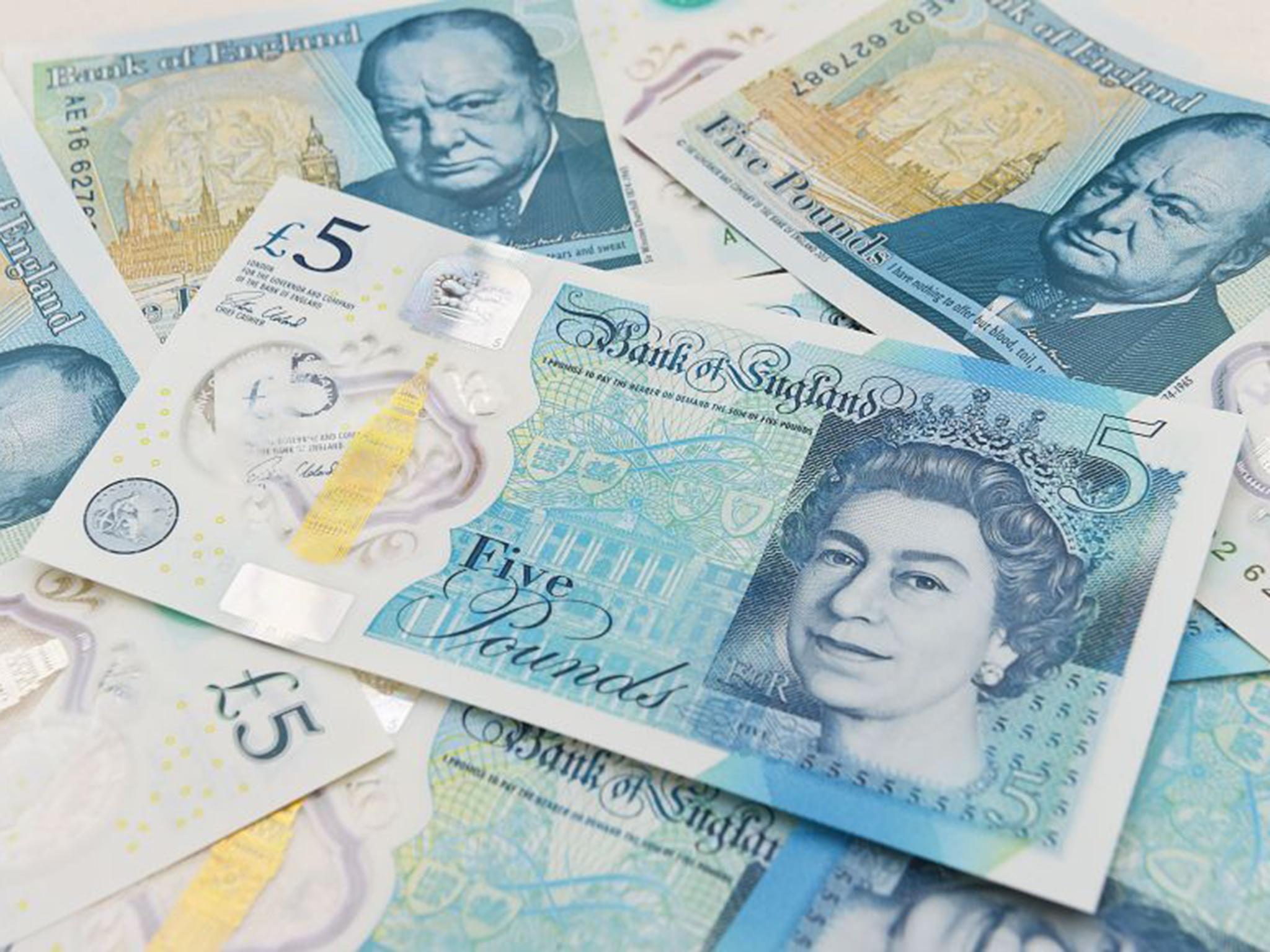The Bank of England was right not to bow to the vegetarian lobby over five pound notes – here's why
If we deem every ethical or religious assertion a trump card – overriding all else – in public policymaking the system will fall apart; it would be an open invitation to every crank and zealot to demand special and expensive public recognition for their own particular hobby horse


When he warned of the economic downsides of a Brexit vote last year Mark Carney will have braced himself for a shower of abuse. But it’s unlikely the Bank of England’s Governor anticipated being castigated, like Falstaff, as a “whoreson greasy tallow-catch” by a coalition of vegans, vegetarians, Hindus and Sikhs, all united in anger at the fact that the new polymer five pound note contains minute traces of animal fat.
But the Governor has stood firm not only in the face of the Brexiteers but also the vegetarians. The Bank announced last week, after some reflection, that it will stick with its tallow fivers.
Is this wise? Wouldn’t it be better to recall the offending notes and placate the 135,000 or so people who felt strongly enough to sign an online petition last year calling for such a reversal?
One of the reasons proffered by the Bank last week is “value for money for the taxpayer”. The Bank estimates that it has spent £70m on printing new polymer notes. It would incur these costs all over again to reprint them on new material that did not contain tallow. That’s on top of the £50,000 cost of destroying the tallow-contaminated ones.
In other words, it believes a recall would be too expensive. The Bank does say it will look into the feasibility of making future production runs of polymer notes tallow-free.
But that’s not placated the vegetarian petition signers who have asked how the Bank is justified in putting a price on their ethical and religious rights.
But our societies generally operate on the principle policymakers are justified in making judgements about how much public money should be spent on meeting certain objectives that are dear to the heart of some groups, whether this is providing prayer rooms in hospitals, or protecting the habitats of certain rare species of plant.
Indeed, even human lives have an implied "value" in public policy.
Many lives could be saved or prolonged every year if the government bought up the niche cancer drugs developed by pharmaceutical companies, or by councils redesigning every potentially unsafe road junction in the country. But they don’t do these things because the public cost is deemed prohibitive.
It’s true that there are some things that most of us would agree should not be measured by the benchmark of money, such as a human liberty.
Money is not a consideration in the eyes of the government when it comes to protecting our citizens from enslavement.
Similarly, the law doesn’t allow people to sell their second kidneys to the highest bidder – even when it would make the buyer and the seller better off – due to the prevailing social conviction that such a trade would undermine human dignity.
It's not about money.
Yet the number of such incommensurable rights and ethical values has, by necessity, to be very limited or the result would be a chaos of clashing principle.
If we deem every ethical or religious assertion a trump card – overriding all else – in public policymaking the system will fall apart; it would be an open invitation to every crank and zealot to demand special and expensive public recognition for their own particular hobby horse.
Should the belief of vegetarians and Hindus that they should not be put in a position by the Bank of England where they have to touch a bank note made with a trivial amount of tallow be among those small number of trump cards?
Should taxpayers’ money be no object in the mind of the Governor of the Bank of England when it comes to considering the demands of their conscience?
Or did the Bank of England make a reasonable choice in balancing out the strong concerns of a minority with the broad economic interests of society as a whole?
There is no definitively right or wrong answer here. It’s a judgement. We all have the right to make up our own mind about whether a sound decision has been made.
But we surely owe a degree of sympathy to those greasy tallow-catches who are responsible for making the trade-off on our behalf.
Join our commenting forum
Join thought-provoking conversations, follow other Independent readers and see their replies
Comments